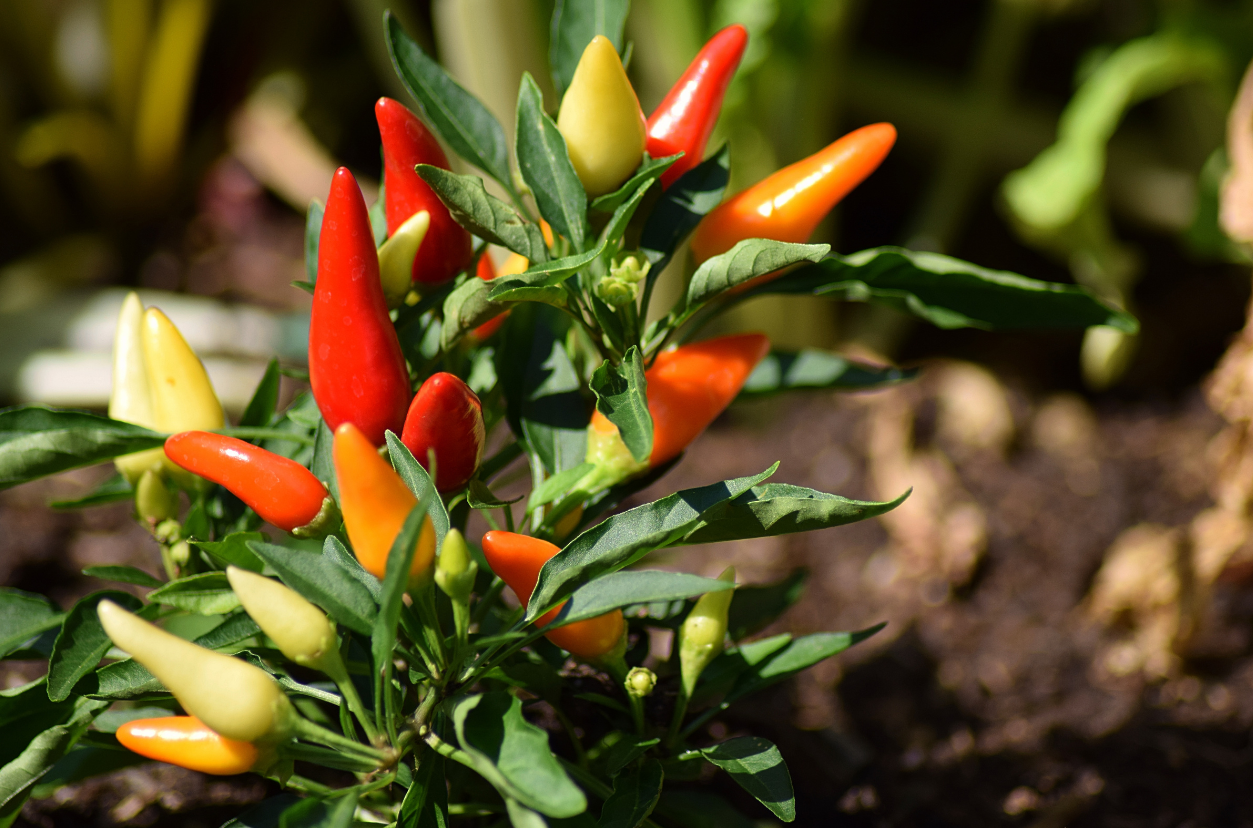Top-Rated Fertilizers for Peppers: Enhance Your Harvest High Quality
Wiki Article
Organic Vs. Synthetic Fertilizers: Which Is Best for Supporting Healthy Pepper Plants?
In the realm of nurturing healthy pepper plants, the choice in between natural and artificial fertilizers stands as a pivotal choice with far-ranging effects. While both choices goal to offer vital nutrients to sustain plant growth, the nuances of their effect on the soil, plant health, and the environment spark a debate that mirrors throughout the horticulture neighborhood. Comprehending the unique advantages and possible challenges of each plant food type is essential for pepper growers looking for to maximize their yields while preserving a sustainable and eco-conscious technique.Benefits of Organic Fertilizers
Organic plant foods use an environmentally-friendly and sustainable approach to beneficial pepper plants, offering vital nutrients without making use of synthetic chemicals. These all-natural plant foods are stemmed from organic sources such as garden compost, manure, bone dish, and algae, advertising dirt wellness and biodiversity. Unlike synthetic plant foods, organic choices launch nutrients slowly, making sure a stable and well balanced supply for pepper plants to prosper.One significant benefit of natural plant foods is their capability to boost soil structure and water retention. By boosting soil health and wellness, natural fertilizers promote valuable microbial activity, which helps in nutrient uptake by pepper plants. Additionally, organic plant foods reduce the danger of chemical run-off, protecting water sources from air pollution and safeguarding the setting.
In addition, natural fertilizers contribute to long-lasting dirt fertility by promoting the growth of useful dirt microorganisms. These microorganisms aid damage down organic matter, releasing nutrients in a type that is conveniently obtainable to pepper plants. best fertilizers for peppers. By cultivating a healthy soil community, natural plant foods sustain sustainable pepper cultivation practices that profit both plants and the setting
Drawbacks of Synthetic Plant Foods
Synthetic plant foods, in contrast to their natural counterparts, position different downsides when made use of to nurture pepper plants, affecting both plant health and wellness and ecological sustainability. One major disadvantage of synthetic fertilizers is their tendency to seep nutrients from the dirt rapidly.Furthermore, the overuse of artificial fertilizers can add to water pollution. Excess plant foods not taken in by plants can get rid of into water bodies, resulting in eutrophication, where algae blooms diminish oxygen degrees in the water, hurting water life. Moreover, synthetic fertilizers are typically acquired from non-renewable sources, such as fossil gas, adding to carbon exhausts and ecological deterioration during their production.
Nutrient Absorption Comparison
Effective nutrient absorption plays an essential role in the general health and development of pepper plants. When comparing organic and artificial plant foods in regards to nutrient absorption, right here organic plant foods have the advantage of supplying a more balanced and slow-release resource of nutrients (best fertilizers for peppers). Organic fertilizers include a range of macro and micronutrients that are not only beneficial for the plants but also advertise healthy soil microbial task, which aids in nutrient uptake. On the various other hand, artificial plant foods frequently offer a quick release of nutrients, which can result in seeping and drainage, resulting in reduced nutrient absorption rates by the plants.Moreover, natural plant foods improve dirt framework and water retention ability, allowing pepper plants to gain access to nutrients extra effectively. This better dirt quality helps with root advancement, making it possible for much better nutrient absorption. Artificial fertilizers, although originally boosting plant growth because of their high nutrient focus, may prevent lasting nutrient absorption by derogatory soil health over time.
Ecological Influence Factors To Consider

On the other hand, synthetic fertilizers, although often even more concentrated and right away offered to plants, can have damaging results on the environment otherwise used correctly (best fertilizers for peppers). Their production calls for high power inputs, resulting in greenhouse gas emissions and adding to climate adjustment. The drainage of excess synthetic plant foods can contaminate water resources, leading to eutrophication and damaging aquatic communities.
Finest Plant Food Practices for Peppers
To attain this, it is essential to comply with best fertilizer practices tailored to the particular needs of pepper plants. One important method is to do a dirt examination prior to using any type of fertilizers.One more essential practice is to fertilize pepper plants at the correct time. Generally, peppers benefit from obtaining plant food at growing and afterwards once again when they begin to flower. Over-fertilizing can result in nutrition inequalities and hurt the plants, so it is crucial to comply with suggested application rates.
Additionally, picking a balanced fertilizer with an NPK proportion that fits pepper plants' requirements is essential. Ultimately, incorporating artificial and organic plant foods sensibly can help support healthy and balanced pepper plants while decreasing ecological effect.
Conclusion

Organic plant foods provide a lasting and environmentally-friendly strategy to nourishing pepper plants, supplying important nutrients without the usage of artificial chemicals. Unlike synthetic plant foods, organic options launch nutrients gradually, guaranteeing a balanced and constant supply for pepper plants to grow.
Synthetic fertilizers, in comparison to their natural counterparts, position numerous negative aspects when used to nurture pepper plants, impacting both plant health and wellness and ecological sustainability. When contrasting natural and artificial plant foods in terms of nutrient absorption, natural plant foods have the benefit of providing a much more well balanced and slow-release resource of nutrients.Furthermore, organic plant foods boost dirt framework and water retention capacity, enabling pepper plants to gain access to nutrients extra efficiently.
Report this wiki page